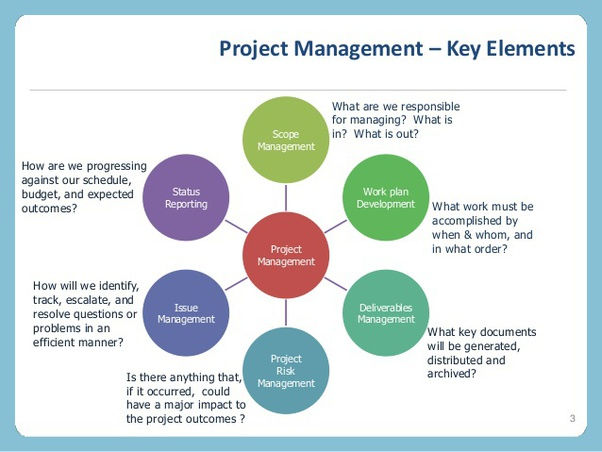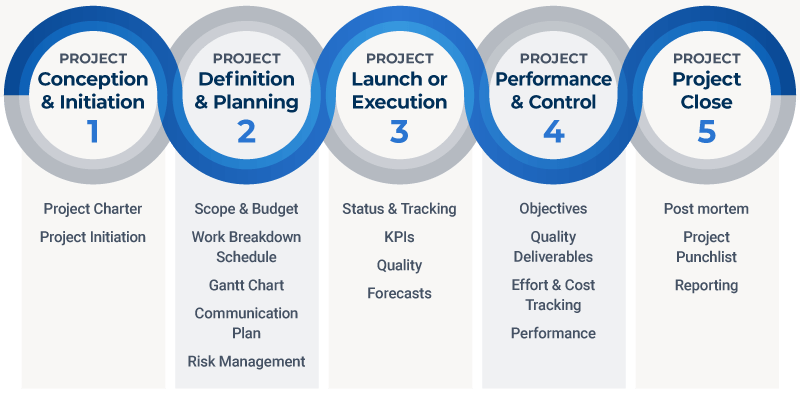What Is Project Management
- Apophia
- Jul 2, 2021
- 4 min read
We shall get the definitions out of the way, so we understand the whole concept at length.
Project management refers to applying processes, knowledge, experience, skills, methods, and dedication to achieve certain project goals or objectives within the set timeline and according to the proposed budget.
Management is an ongoing process, but where a project is involved, it means that there is a specific timeline tied around (beginning time and ending time) within the available resources or budget.
A project is a planned activity undertaken to achieve specific objectives; these objectives could be outputs and benefits either unique or have been in existence before. To consider a project successful, it must have met the set objectives within the specific timeline and according to the proposed budget.
What makes a project unique is that there could be different operations, but all aim to accomplish a single goal and meet those specific objectives. Examples of projects could be like; construction of a road, developing certain software, expanding sales, relief plans, and many others, basically anything that is time-bound, on a budget (with resources), and of course, to be met. Additionally, projects have a timeline, and therefore, they end; such kinds of projects exist in different aspects or walks of life, whether business, health or construction, and many other fields.
While project objectives and goals are determined by clients, stakeholders, sponsors, or principal investigators, project managers apply project management methods and knowledge to create a plan for the project that enables the entire team to meet project objectives or goals within the estimated timeframe budget, and scope.
Project management has several components, and some of these are;
Determining why a project is essential
Noting project requirements, identifying the necessary deliverables, budgeting for resources, and setting a timeline.
Making a business plan to give an appropriate rationale for the investment
Agreeing and identifying the sources of funding
Preparing a management plan
Coordinating the project team
Planning for risks and any other issues that might come up on the project
Monitoring whether the plan is in line with the proposed project
Administering and supervising the budget
Enhancing the flow of communication between different project stakeholders and managers
Empowering management
Appropriately ending the project with objectives met
Project management has key areas of emphasis, and these are;
1. Integration
2. Scope
3. Time
4. Cost
5. Quality
6. Procurement
7. Human resources
8. Communications
9. Risk management
10. Stakeholder management

The Five Stages Of A Project Life Cycle
Like the same a person goes through stages of growth, projects also go through certain stages, starting from the initiation phase to the closing stage.
1. Initiation
This is the starting stage of every project. Here, a project manager must prove the value, the need, and the feasibility of the project and whether that specific project can actually be done within the specific time period and the cost. Then when feasibility is accepted and confirmed, a project charter/project brief is brought on board, and this document shows what the project will deliver.
After this, stakeholders, managers, and other relevant parties are brought together to put across goals, processes, and means through which they will be achieved.
2. Planning
This is the second phase for most of the projects after approval. This phase aims to put in place a project plan which works as a guide to the rest of the processes and phases. Core things outlined in this project phase include; costs, timeframe, resources, risks, and carrying out of the project. In addition, in this specific phase, a work breakdown structure is put in place; this might include; activities, milestones or things to be achieved, and other deliverables, making it easy to craft schedules and delegate tasks to people part of the project. Currently, most project plans are run by using software; however, the commonly used project software is Gantt chart software, which acts as a roadmap from the start of the project to the end.

3. Execution
This is the 3rd stage of project management. Under this phase, activities and milestones are put down in the plan, and they have to be done or executed to manufacture deliverables to the clients or funders. The project manager is given the capacity to make adjustments in terms of resources as they want to empower the teams and keep them moving and working to deliver. At this stage, risks/challenges are identified and dealt with; thus, some changes are expected.
4. Monitoring and control
This is the second last stage of project management; this usually starts taking place at the time when project execution begins. Project monitoring and control involve monitoring the project's performance to make sure that it keeps on track and within the proposed budget and ensures that the quality expected is met. This phase majorly aims at ensuring that scope, time, and cost are kept within their meant targets.
5. Closing
This is the last phase of project management, and so the final achievements are delivered to clients. When the closure is approved, documentation is done, and all the activities are completed and signed off. An evaluation is done to look back at what transpired in the course of the project, and the project coordinator hands over or conducts a smooth handle over.
Project management has three main triple constraints including;
Time; this looks at the estimated period in which the project will be completed.
Scope; this looks at the work or the necessary activities that must be carried out or done before the project is completed.
Cost; this covers the budget that is necessary to cover all the project activities as planned.
As we conclude, to highlight a little about a project manager, this is a person responsible for planning and executing project activities. Project managers are usually responsible for;
Managing resources
Leading teams
Scope management
Managing tasks
Scheduling
Controlling and ensuring quality
Cost management
Managing risks
Stakeholder management and reporting about the status of the project.
.jpg)



Comments